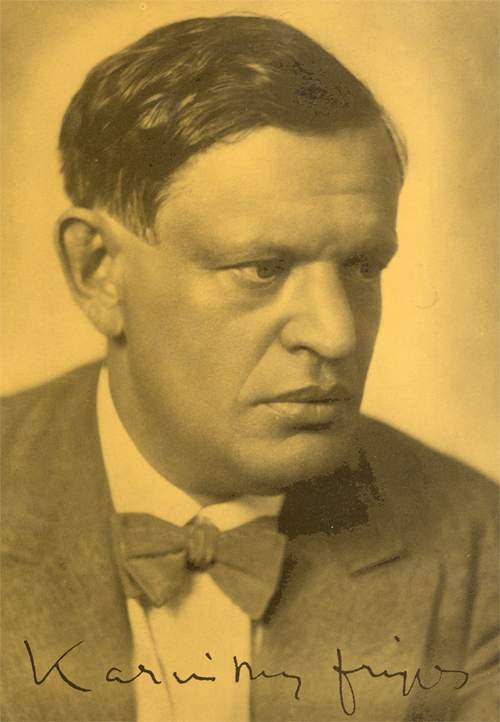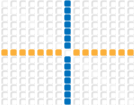Tanár úr kérem (Magyar)
A jó tanuló felel
A jó tanuló az első padban ül, ahol hárman ülnek: ő a középen, a jó tanuló,
Steinmann. Az ő neve nem tisztán egy ember jelzésére szolgál – szimbólum ez
a név, ahány fiú az Osztályban, annyi apa ismeri otthon ezt a nevet. „A Steinmann
miért tudja megtanulni?” – kérdezi otthon harminckét apa harminckét fiútól.
„Kérd meg a Steinmannt, hogy magyarázza meg” – mondja az apa, és a fiú valóban
megkéri a Steinmannt. A Steinmann mindent tud előre, még mielőtt megmagyarázták
volna. Matematikai lapokba dolgozik, és titokzatos szavakat tud, amit csak az
egyetemen tanítanak. Vannak dolgok, amiket mi is tudunk, de ahogy Steinmann
tudja, az a biztos, az az egyedül helyes, az az Abszolút.
Steinmann felel.
Ez különleges, ünnepélyes pillanat. A tanár sokáig nézte a noteszt, halálos
feszültség remeg az Osztály felett. Mikor később a francia rémuralom történetét
olvastam, mikor a Conciergerie foglyai közül előszólítják a halálraítélteket:
mindig így tudtam csak elképzelni. Az agyak utolsó, véres erőfeszítésben kapkodnak
lélegzet után – még van két másodperc, azalatt mindenki villámgyorsan elmondja
magában a mértani haladvány tételeit. Tanár úr, én készültem, mondja az ember
magában. Tanár úr, fiam tegnap gyöngélkedett. Az egyik lehajol a füzete fölé,
mint a strucc, hogy ne lássák. A másik merően szembenéz a tanárral, szuggerálja.
A harmadik, idegember, egész elernyed, és behunyja szemeit: hulljon le fejére
a bárd. Eglmayer az utolsó padban egészen elbújik Deckmann háta mögé, ő nincs
is itt, köszönöm szépen, nem tud semmiről, őt írják be a hiányzók közé, törüljék
ki az élők sorából, őt felejtsék el, béke poraira, ő nem akar részt venni a
közélet küzdelmeiben.
A tanár kettőt lapoz, a K betűnél lehet – Altmann, aki az év elején Katonára
magyarosította a nevét, e percben mélyen megbánta ezt az elhamarkodott lépést.
De aztán nagyot lélegzik: egyszerre megállnak, és a tanár becsukja a noteszt.
– Steinmann! – mondja egész halkan és kivételesen.
Nehéz, felszabadult sóhaj. Kivételes, ünnepélyes hangulat. Steinmann gyorsan
feláll – a mellette ülő gyorsan kiugrik a padból, szerényen és udvariasan áll,
míg a jó tanuló kimászik a padból: mint egy testőr, néma és mellékes, dekoratív
szereplője egy nagy eseménynek.
Maga a tanár is ünnepélyes. Oldalt ül le a székre, és összetett ujjakkal gondolkodik.
A jó tanuló a táblához megy, és kezébe veszi a krétát. A tanár gondolkodik.
A jó tanuló erre felkapja a spongyát, és sebesen törülni kezdi a táblát: ebben
végtelen előkelőség és önérzet van, ezzel azt akarja kifejezni, hogy ő ráér,
hogy neki nem kell most törni a fejét, ő nem fél, ő mindig készen van, ő addig
is, míg a felelés kezdődik, valami hasznosat akar csinálni a társadalomnak,
ő ráért gondolni a köztisztaságra és az emberiség békés fejlődésére, és letörüli
a táblát.
– Hát – mondja a tanár, és elgondolkodva húzza a szót – majd valami érdekes
példát veszünk…
A jó tanuló udvariasan és végtelen megértéssel köhög. Természetesen, valami
érdekes példát, az érdekes helyzetnek megfelelőt. Most úgy néz a tanárra, komolyan
és melegen, mint egy szép grófnő, akinek egy gróf megkérte a kezét, és mielőtt
válaszolna, megértéssel és rokonszenvvel mélyen a gróf szemébe néz, jól tudva,
hogy e tekintet elbűvöli a grófot, s a gróf remegő boldogsággal sejti, hogy
a válasz kedvező lesz.
– Vegyünk egy kúpot… – mondja a gróf.
– Egy kúpot – mondja Steinmann, a grófnő. De már ezt is úgy tudja mondani ez
a Steinmann, annyi megértéssel, olyan okosan: csak ő tudja, mennyire kúp az,
amit veszünk. Én, Steinmann, a legjobb tanuló az egész osztályban, veszek egy
kúpot, mivel engem mint az erre legalkalmasabbat megbízott a társadalom. Még
nem tudom, miért vettem a kúpot, de nyugodtak lehettek mindannyian, bármi történjék
ezzel a kúppal, én is ott leszek a helyemen, és megbirkózom vele.
– Különben – mondja a tanár hirtelen – vegyünk inkább egy csonka gúlát.
– Csonka gúla – ismétli a jó tanuló, ha lehet, még értelmesebben. Ő a csonka
gúlával éppen olyan határozott, barátságos, bár fölényes viszonyban van, mint
a kúppal. Mi neki egy csonka gúla? Ő nagyon jól tudja, őt nem lehet félrevezetni,
a csonka gúla is csak olyan gúla, mint más normális gúla, egyszerű gúla, amilyent
egy Eglmayer is el tud képzelni – csak le van vágva belőle egy másik gúla.
A felelés rövid ideig tart. Fél szavakban beszélnek egymással, értik egymást,
lassanként intim dialógus alakul ki a tanár és a jó tanuló közt: mi már nemi
is értjük, ez az ő kettejük dolga, két rokon lélek, mely itt előttünk egyesül,
a differenciálegyenletek éteri légkörében. Egy mondat közepén eszmél rá a tanár,
hogy miért is beszélgetnek ők, hogy ez felelés, az előmenetel megítélése. A
jó tanulónak be sem kell fejezni ezt a mondatot. Minek befejezni? Maradt-e szemernyi
kétség afelől, hogy be tudja fejezni?
A jó tanuló szerényen és illedelmesen ül le. A következő percben már roppant
érdeklődéssel figyeli a következő felelő szánalmas dadogását: egy szónál gúnyosan
és diszkréten elmosolyodik, és a tanár tekintetét keresi lopva, hogy még egyszer
összenézzen vele, és a tanár lássa, hogy ő, bár nem szól, arcizma se rándul:
e gúnyos mosolyban jelezni óhajtja, mennyire tisztában van vele, milyen marhaságot
mondott a felelő, és hogy mit kellett volna felelnie. | Kiadó | Móra Könyvkiadó – Kárpáti Kiadó, Budapest–Uzsgorod |
| Az idézet forrása | p. 30-33. |
|
Oh, Sir! (Angol)
The good pupil is being tested
The good pupil sits in the front row where three are seated: Steinmann, the good pupil, is in the middle, His name does not merely serve to denote a person, this name is a symbol. For each boy in class there is a father back home who knows this name. “Why can Steinmann learn it?” is what thirty-two fathers ask of thirty-two boys. “Ask Steinmann to explain it to you” says the father and the son really asks Steinmann. Steinmann knows everything before it is explained. He works for mathematical papers and knows mysterious words that are only taught at the university. There are things we also know, but the way Steinmann knows them is the sure way, the only correct way, the absolute way.
The teacher calls on Steinmann.
This is an especially solemn moment. The teacher looked at his book for some time. A deathly tenseness is quivering over the class. When later I read the history of the reign of terror in France, when those condemned to death from among the prisoners of the Conciergerie are called: this is the only way I could ever imagine the scene. The brains in a final, bloody exertion are grasping for air – still a couple of moments left, during those everyone recites to himself theorems of geometric progression with lightning speed. Sir, I did study, one says to himself. Sir, my son was unwell yesterday. One of them bends over his exercise book like an ostrich so he will not be seen. Another one stares intently at the teacher, eyes him. The third, a creature of nerves, goes numb and closes his eyes: let the axe fall upon his head. Eglmayer in the last row hides completely behind Deckman’s back, he is not even here thank-you-very-much, he knows about nothing, they should put him down as absent, wipe him from the list of the living, let him be forgotten, may he rest in peace, he does not wish to participate in the struggles of public life.
The teacher turns a couple of pages – Altmann, who changed his name to the more Hungarian name Katona at the start of the year, came to deeply regret this thoughtless step at this moment. But then he breathes a sigh of relief: a sudden stop and the teacher closes his notebook. - Steinmann! - he says quietly and in an unusual way. A heavy sigh of relief. An unusually solemn mood. Steinmann quickly stands up – the one next to him quickly jumps from the desk and stands humbly and politely whilst the good pupil clambers from the desk: like a body-guard, silent and marginal, a decorative extra to a great event.
Even the teacher is solemn. He sits down on a chair at the side and is thinking with fingertips touching fingertips. The good pupil goes to the board and picks up the chalk. The teacher is thinking. At this the good pupil grabs the sponge and quickly begins to wipe the board: an act displaying endless refinement and self-esteem, with this he wished to express that he has time, he does not have to rack his brains, he is not afraid, he is always ready, even before testing begins he wishes to do something useful for society, he has time to think about sanitation and the peaceful evolution of mankind and he will wipe the board.
-Well- says the teacher and thoughtfully elongates the word – we shall use an interesting example…
The good pupil coughs with politeness and understanding. Of course, an interesting example, one befitting an interesting situation. Now he looks at the teacher seriously and warmly, like a beautiful countess whose hand had been asked for by a count and who, before giving her answer, looks engagingly and with understanding deeply into the count’s eyes, knowing full well that this glance will enchant the count, and the count will, with quivering happiness, believe that the answer will be favourable.
- Let’s take a cone… - says the count.
- A cone – says the countess Steinmann.
But this Steinmann can say even this with so much understanding, so cleverly: only he knows how much of a cone is that which we take. I, Steinmann, the best pupil in the whole class, take a cone because, being the one most suitable for this purpose, society has commissioned me. I don’t know why I took the cone yet, but you can all rest assured, that whatever happens to that cone, I, too, will stand my ground and will cope with it.
- Or – says the teacher suddenly – let’s take a truncated pyramid instead.
- Truncated pyramid – repeats the good pupil even more intelligently if that is possible.
His relationship to the truncated pyramid is just as unfaltering and friendly, though somewhat supercilious, as it is to the cone. What is a truncated pyramid to him? He knows full well, he cannot be misled, a truncated pyramid is like any other normal pyramid, a simple pyramid the like of which even an Eglmayer can envisage – it’s only that another pyramid had been cut from it.
His answers to the teacher are brief. They talk to each other in half-said words, they understand each other, slowly a familiar dialogue develops between the teacher and the good pupil, by then we don’t even understand them, what is said is their concern, two kindred souls uniting before us in the rarefied atmosphere of differential equations. Then, in the middle of a sentence, it dawns on the teacher: why are they chatting? This is verbal testing after all, assessment of progress. The good pupil does not even have to finish this sentence. Why finish it? Is there even a modicum of doubt that he can finish it? Unpretentious and well mannered, the good pupil takes his seat. A moment later he is already attentively listening to the pitiable stutter of the next one being tested: at one word he allows himself a discreet, sarcastic smile and surreptitiously seeks the teacher’s eye to exchange glances once again and show him that although he does not say anything or twitch his facial muscles, he wishes to indicate with his sarcastic smile how very aware he is what poppycock the testee had just said and what the answer should have been.
|



